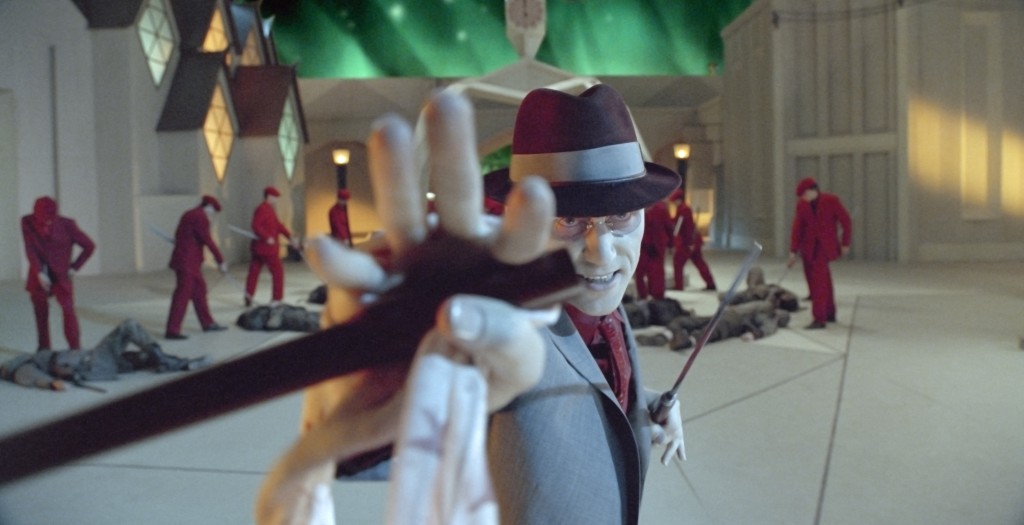Culture
The wild wonderment of “Bunraku”

Bunraku
dir. Guy Moshe
Release Date: Sep 30, 11
- 1
- 2
- 3
- 4
- 5
- 6
- 7
- 8
- 9
- 10
Once in a while, a film graces theaters that is so inexplicably bizarre in both concept and execution that one wonders what level of pitch-meeting hustle was required to bankroll it. This is not a quality judgment so much as an expression of baffled mirth. Last year, The Warrior’s Way played that role (cowboys vs. ninjas vs. Kate Bosworth’s utter lack of affect, somehow costarring Geoffery Rush), and now we have Bunraku, a singularly unique film that succeeds where the similar Way failed.
Bunraku is a veritable cornucopia of stunt-casting, starting with Josh Hartnett (where has he gone?) as a nameless drifter, wandering into a post-apocalyptic town in search of Nikola (Ron Perlman), a corrupt official. Before I continue, two things must be acknowledged:
1) In this land, guns have been outlawed after a costly world war, and so only the sword, the knife, the cane or the skill of hand-to-hand combat can settle disputes.
2) All of the film’s backgrounds are structured like a pop-up book, or more accurately like the puppet theater tradition for which the film is named.
Anyway, the drifter crosses paths with Yoshi (J-Pop star Gackt), a swordsman from the country also searching for Nikola. The two are mentored by the Bartender (Woody Harrelson), who knows how to get through Nikola’s nine deadly protectors and into the camp where, perhaps, he can be stopped.
This gets burned through in around ten minutes of screen time, and I’ve not yet even outlined the thunderdome-esque gang wars/public forums, the hyper-stylized fight scenes or the appearance of Demi Moore as a mysterious geisha. Oh, and Mike Patton (of Faith No More/roughly 76 other bands fame) delivers the swaggering narration.
Needless to say, Bunraku is packed to the gills with moving parts, and to its credit there’s rarely a dull moment. While this is all well-worn territory, the CG-heavy aesthetic adds a heft to the film, and to the credit of director Guy Moshe and the effects team, there’s a pervading realness to the film’s world despite its deliberately facile nature. Moshe is also done a solid by his cast, all of whom know exactly what kind of film they’re in and are more than game.
The film’s choreographed fighting works well, for the most part, even if once the stakes are established there’s a certain degree of audience burnout that’s almost inevitable. The delicacy of the world is offset by a decent volume of surprisingly brutal violence (here’s a fight film that earns its R) that interrupts the film whenever it starts to get a bit too precocious. A more off-kilter story may have suited Bunraku well, but at the very least, it’s one hell of a memorable fight flick.